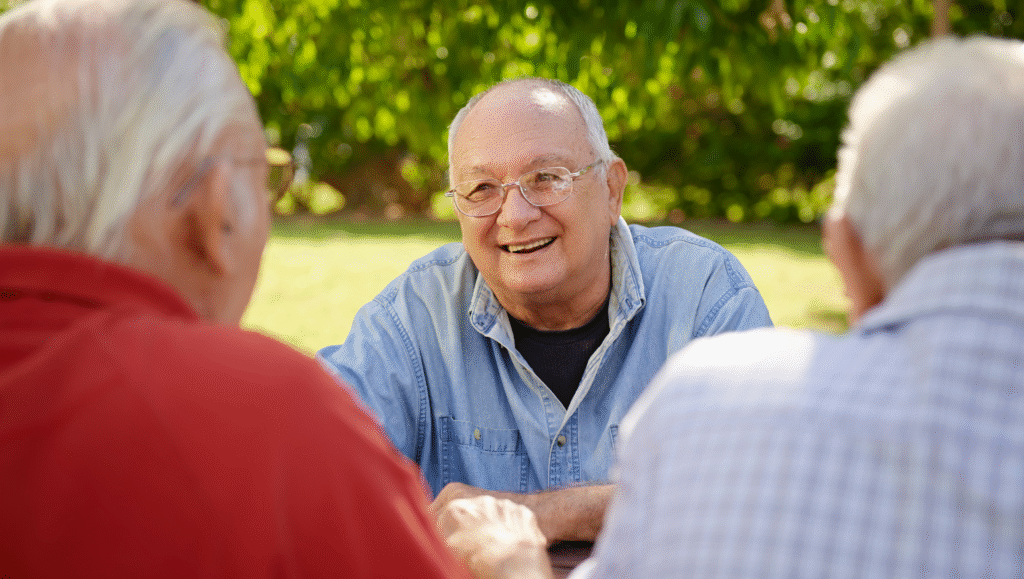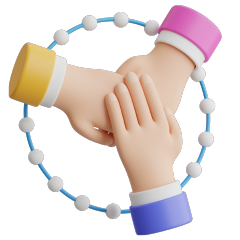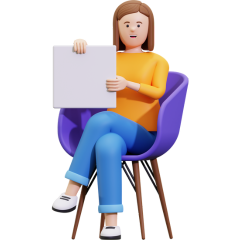The surprising power of arts and recreation for older adults

Arts and recreation for older adults show how creativity and play can build connection at any age. These shared activities turn into moments of joy and belonging.
Table of Contents
Engaging in arts and recreation matters, not as something to fill the hours but as a meaningful way to nurture health and a sense of wellbeing.
For older Australians, simple activities can brighten the day, keep bodies and minds active and help life feel rich and satisfying.
Arts and recreation: More than a pastime
When people talk about arts and recreation, it can be easy to picture “keeping busy”. Research says there is much more to it. A large study of older Australians found that those who took part in arts and cultural activities, from reading and crafting to attending concerts or plays, reported higher mental wellbeing and better general health than those who did not take part. The difference was meaningful, even after accounting for age and lifestyle factors.
Think about how it feels to get lost in a favourite book, finish a small craft or sing along to a song you love. That lift you feel is real. It brings energy to the day, gives you something to look forward to and helps you stay in touch with who you are.
What the data tells us
It helps to have numbers that back up what many people feel.
- Australia is getting older. Official projections show the share of Australians aged 65 and over will keep rising through to 2071. Planning for meaningful recreation is part of planning for a healthy, vibrant later life for millions of people.
- National health guidance for older Australians encourages daily movement, with a focus on balance, strength, and flexibility. Even small steps count. Gentle activities support better sleep and mood, help manage health conditions and lower the chance of falls.
- Reviews of aged care practice highlight something important. When activities are meaningful to the person, enjoyable and adapted to their abilities, life satisfaction improves. Put simply, people benefit most from activities they actually like.
- Person-centred approaches, like knowing someone’s story, interests and preferences, make activities more appealing and easier to keep up.

These points tell a clear story: recreation is an essential part of health and happiness in later life.
Moving for health and vitality
Recreation is also about movement, and movement is medicine. Australia’s guidelines for older adults suggest being active on most days and mixing activities that build fitness, strength, flexibility and balance. That might mean a brisk walk with a neighbour, a few strength exercises with tins from the pantry, tai chi in the park or a gentle class at the community centre. If 30 minutes feels like too much, starting with ten minutes is a good plan. Every bit helps.
What matters most is choosing activities you enjoy. When movement is enjoyable, people are more likely to keep it up. Reviews of practice in aged care echo this point. Programmes work best when they are personalised, when staff are familiar and encouraging and when people feel safe and supported to try.
Practical ideas that fit into real life
Here are some simple ways to bring more recreation into the week, whether you live at home or receive support:
- Start with favourites. Make a short list of activities that have always made you feel good. Reading, knitting, gardening, jigsaw puzzles, watercolours, crosswords or music. 10-15 minutes is enough to begin.
- Mix movement and meaning. Combine walking with something you enjoy, like noticing birds, taking photos of flowers or visiting a familiar street market.
- Use prompts. Place your book by the kettle, or your small weights by the TV chair, so it is easy to remember.
- Make it social if you like. Join a local craft circle, men’s shed or walking group. If you prefer quiet time, choose solo activities and set a regular time in your calendar.
- Keep it safe and comfortable. Ask a health professional about options that suit your needs. Start small, build gradually, and celebrate progress.
These ideas are simple yet powerful. They help turn good intentions into habits that feel natural.
Arts and recreation support, the Leora way
For us, care is about bringing light into each day.
Sometimes that looks like setting up a weekly “paint and tea” hour. Sometimes it is a music playlist from a favourite decade, herbs in a sunny spot, or a small outing to the library. Sometimes it is a gentle routine of balance and strength exercises, done together with encouragement and a smile.
Care works best when it feels personal, when it respects dignity, and when it leaves room for small moments of joy. Evidence supports that approach. Person-centred activity and meaningful lifestyle programmes are linked to better participation and higher life satisfaction in aged care.
We can build settings where older people have easy access to the activities they value. We can make walking safe and inviting, bring creative groups into neighbourhood centres, and fund small, person-led programmes in home care. We can train support workers to ask about personal interests and to adapt activities so anyone, at any level of ability, can take part with confidence. These are practical steps, and they make a real difference.
Living well, living fully
Recreation helps later life feel hopeful, purposeful and bright. It invites us to rediscover old passions, try small new things, and enjoy the everyday activities that lift the spirit. With the right support, ageing can be a season of growth and deep satisfaction.
Leora is committed to this vision. We see recreation as an essential part of care, alongside clinical support and daily routines. It keeps people strong, steady and engaged with the world around them.
Would you like support to engage in recreational activities? Learn more about our aged care services.





